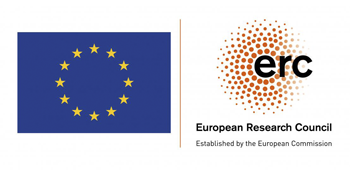Two ERC Consolidator Grants at the Centre
9 DEC 2020
The European Research Council (ERC) will fund groundbreaking research by WIC scientists Eva Beaujouan (University of Vienna) and Raya Muttarak (IIASA).
Eva Beaujouan: BIC.LATE - Biological, Individual and Contextual Factors of Fertility Recovery
A few decades ago, most women had their children in their 20s. Today, across the high-income countries, they tend to have them in their 30s. Whether women and men will have children or not, and how many, is thus increasingly determined by their desire and ability to have children at later reproductive ages.
In that context, the conditions met by individuals in their 30s have become key to having children. The objective of BIC.LATE (“biological, individual and contextual factors of fertility recovery”) is to study these conditions. We will assess the importance of infertility and assisted reproduction for fertility recuperation; we will detect new inequalities that could raise in that context; and we will explain differences in fertility levels across the low-fertility countries.
We will use survey and panel data, data from fertility clinics and aggregate cohort fertility trends in Europe, the English-speaking oversea countries and East Asia. BIC.LATE will no longer consider that fertility is explained globally, but that it is driven by different factors depending on the age. It will link the conditions at the time of fertility recuperation to today’s and tomorrow’s fertility levels. And finally, it will inform policy-makers about the major contextual drivers of future fertility, using clearly articulated storylines and their associated scenario.
Eva Beaujouan is assistant professor at the Department of Demography of the University of Vienna. After a Ph.D. thesis at the French institute of Demographic studies INED, she joined the ESRC Centre for Population Change (University of Southampton) as a postdoc for three years. She has been part of the Wittgenstein Centre for Demography since 2012, first at the Vienna Institute of Demography and the Vienna University of Economics and Business, and now at the University of Vienna. She is currently leading a three-year project on late fertility in Europe, funded by the Austrian Research Fund.
LINK press release University of Vienna
LINK press release OeAW
Raya Muttarak: POPCLIMA - Population Dynamics under Global Climate Change
Population and climate change are intricately linked. Growing populations and human activity are a primary cause of global warming, and worsening climate change is affecting human health and wellbeing. Climate impacts can potentially affect population size and composition and determine where people live. In turn, these changing demographics can influence global climate systems. The Population Dynamics under Global Climate Change (POPCLIMA) project, funded by an ERC Consolidation Grant, aims to unpack these complexities by undertaking a comprehensive study of how changing climate impacts population trends. The aim is to gain insight into the socioeconomic costs of climate change and provide more realistic population projections for the scientific community and policymakers.
Until now, global population estimations have not considered the possible effects of climate change on population dynamics. Existing studies have mostly focused on the effects of population growth on global warming or identifying populations at risk from climatic hazards such as increased heat, flooding, or drought. The new project will address this gap by using a variety of methodologies and datasets to undertake a comprehensive analysis of fertility, mortality, and migration levels that are fundamental to population projections. The results will be used to inform population projections under different future climate change scenarios.
The project’s innovative methodological approach uses a combination of geo-referenced climate, population, and socioeconomic data from different sources, including surveys and social media at the individual, regional, and country levels. The study will look at how changing climate impacts different sectors of populations and identify the ways in which mortality, fertility, and migration patterns are influenced.
Raya Muttarak holds an MSc and DPhil in sociology from the University of Oxford. She is a senior lecturer (associate professor) in Geography and International Development at the School of International Development, University of East Anglia, UK. She is a research group leader on Population, Environment and Sustainable Development at the Wittgenstein Centre for Demography and Global Human Capital. From 1st January 2021 onwards Raya Muttarak will lead IIASA's Population and Just Societies Program.
___________________________________
ERC Grants 2020
ERC Funding
Current ERC projects at the Centre
The Wittgenstein Centre aspires to be a world leader in the advancement of demographic methods and their application to the analysis of human capital and population dynamics. In assessing the effects of these forces on long-term human well-being, we combine scientific excellence in a multidisciplinary context with relevance to a global audience. It is a collaboration among the Austrian Academy of Sciences (ÖAW), the International Institute for Applied Systems Analysis (IIASA) and the University of Vienna.

